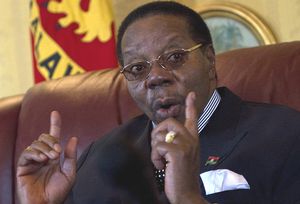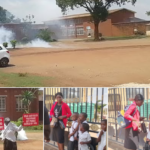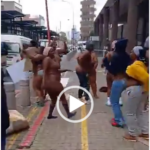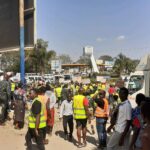Malawi’s protesters to come out of hiding after bloody crackdown
Published on July 28, 2011 at 12:16 PM by FACE OF MALAWI
Protest leaders in Malawi said yesterday they were coming out of hiding and would stage fresh demonstrations one week after 19 people were killed in a violent government crackdown.
President Bingu wa Mutharika has been condemned internationally for his response to the initially peaceful demonstrations and the US and UK have suspended aid to the country.
“It’s not leadership to be in hiding; we will meet them head-on,” said human-rights lawyer Ralph Kasambara, who has been charged with treason for his part in organising protests and representing government critics. “Other people have lost their lives; we should be prepared to lose ours.”
As many as 500 people have been arrested since Mr Mutharika vowed to “go after” organisers of the protests, saying: “Even if you hide in holes, I’ll smoke you out.”
Mr Kasambara said that while the protests were about the economy to begin with, more people were now calling for the President to step down: “He has lost his head and he must go.” Still among the poorest countries on the continent, Malawi’s feted economic progress has gone into reverse recently and fuel shortages, economic hardship and government oppression prompted a day of protests on 20 July.
A broad coalition of rights groups, academics and political activists have petitioned the President to “ease the suffering of Malawians” by selling his personal jet, stopping a salary paid to the first lady, slimming the cabinet from more than 40 to 14 ministers and seeking repayment of a loan made to the government of Robert Mugabe in Zimbabwe.
After initially banning the marches, police then fired tear gas into the crowds last Wednesday, setting off angry clashes, and later used live ammunition, according to witnesses. The government has blamed the violence on political opponents and the protest leaders and said police had to use force to quell rioters and vandals.
Undule Mwakasungula, who runs a local human-rights group, said he was attacked by police inside a church compound while waiting for news of legal efforts to overturn the injunction: “The police came charging at us with sticks and guns, it was terrible,” he said.
Mr Mwakasungula, who spoke by telephone from a safe house, said he narrowly avoided arrest after colleagues intervened: “If they had taken me I would probably never have got out of there alive.”
He added that civil society leaders were meeting to decide their next move.
By Daniel Howden, Africa Correspondent



